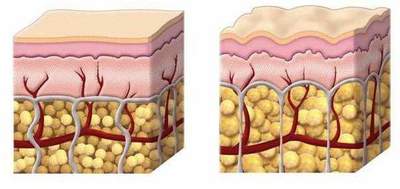7 important steps to reduce the stigma of mental disorders

No matter how we tried to convince myself otherwise, but a variety of mental disorders are common worldwide. According to the community's mental illness NAMI, about one in five adult receives a disorder at least once a year, and up to 50% of people at least once in their lives experience a serious mental illness. Given the statistics, it should be obvious that these issues should be approached seriously. But for some reason, in many countries, particularly in Russia, there is still a stigma attached to mental illness. To handle the situation is possible - enough to take a few important steps every day.
1. Talk to your friends
One of the best ways to increase the visibility of mental illness in the community - to talk with all the people in their environment and find out how they really feel. Perhaps, right now your friend is very hard times, but he tries not to show it. If you see signs of increased anxiety, depression or OCD - Make sure that the person working with the disorder and offer your support.
2. Listen to

Perhaps now someone from your relatives just want to share an important, without fear of judgment. Instead of looking for someone else's decision problem, try to just listen. Even the silent presence can help more than you think. Say, "I hear you," but keep your advice to yourself - until you will be asked a specific question.
3. Share your experience
Do not be afraid seem vulnerable - telling your story, you can reduce the stigma against mental illness. People who faced with difficult times, we would like to know that this has happened to someone else. Tell not only about the bad things that are happening to you, but it also happened to the steps and decisions that you have done to solve the problem. Do not rush and do not think that if your disorder is passed in the past month - the same will happen with the other person.
4. Support and lead

If someone particularly close to you think about how to look for professional help, support him in this decision. Family and friends - a good support, but they may lack the necessary tools that are needed to man with a mental disorder. Wrong Council can potentially worsen the situation, and a professional can help start the healing process and find the best ways to solve health problems. Know what support centers are in your town, offer thematic literature or even a blog, telling about mental illness.
5. Do not push
While the search for professional help can save the lives of some people, who are struggling with mental illness, consult a therapist can not do everything. Try not to put pressure on the man who puts advice - in his way can stand their own biases, cultural stigma and lack of finance. Recommend free methods that they can use, and also offered to talk with someone else who has coped with a similar situation.
6. Be ready to stand up for

People with prejudice, denied that they may have a mental illness, very bad feel to the period of the disease, which does not believe. At the same time they can hurt others, speaking out strongly against those who are aware of their disorder. Interrupt the toxic talk and do not allow the company to someone voiced their prejudices against people with mental illness. Break down stereotypes and ensure that as positive changes in your company.
7. Check your own habits
Each of us affects the environment, so it pays to take the time to examine their own prejudices and the words that you choose to talk with others. Forget about the fact that people with mental illness are more prone to violence, and the man in a depression could only lie in bed and cry. Check with topical literature to learn more about different diseases and how they can affect everyday life.
According to Psychology Today, it is imperative to change and vocabulary that you use. The use of the word "crazy" or "schizophrenic" in the pejorative view can only strengthen stigmatization. You can call some actions "stupid" or "unexpected", but does not associate them with illness. Do not focus on those troubles which are associated with the disorder, for example, it is better to speak not "suffer bipolyarkoy" and "living with bipolar disorder." The more accurate term - the smaller and condemnation.
Do your friends know that having a mental disorder should not be ashamed?













































